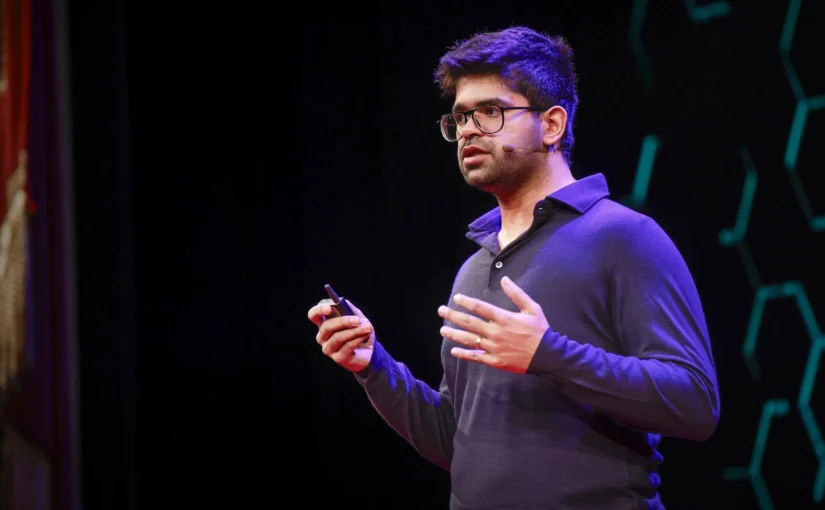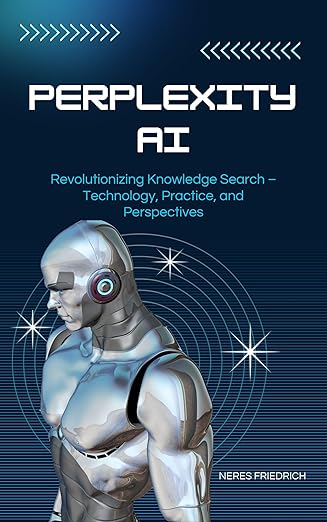“You never want to create a product that’s already out there.” That was the mantra Arvind Srinivas lived by when he walked away from the hallowed halls of OpenAI and Google Brain to build something audacious: a search engine that didn’t just link — it answered. In a world dominated by Google’s trillion-dollar empire, Srinivas dared to ask: What if search could be smarter, faster, and more honest?
Born in Madras (now Chennai) in 1994, Srinivas was a curious child who grew into a relentless learner. He earned dual degrees in electrical engineering from IIT Madras, then pursued a PhD in computer science at UC Berkeley — a place where AI wasn’t just studied, it was lived. His research stints at OpenAI, DeepMind, and Google Brain gave him a front-row seat to the future of machine learning. But Srinivas wasn’t content being a cog in Big Tech’s machine.
“I didn’t want to just write great papers. I wanted to build something.” — Arvind Srinivas, UC Berkeley lecture
Arvind’s academic journey began with heartbreak. Despite acing the Joint Entrance Examination, he missed out on his dream stream — Computer Science at IIT Madras. Instead, he was placed in Electrical Engineering. The disappointment was crushing.
“My friends got into Computer Science. I didn’t. For a year, I was just depressed.” — Srinivas on the Aarthi & Sriram podcast
He tried to switch departments after his first semester, but missed the cutoff by a mere 0.01 CGPA. That decimal point felt like a death sentence to his dreams.“ I thought that was the end of the world. I was so mad at myself.” Srinivas said later.
But instead of giving up, Arvind went inward. He stopped socializing, immersed himself in online lectures, and taught himself Python — a language few of his peers were using at the time. He dove into competitive programming and machine learning out of sheer determination. “It was more out of vengeance. I wanted to prove I was good at this.” Srinivas admitted in a podcast. But that wasn’t just a line from a podcast. It was the fire that fueled Arvind Srinivas’s journey from a disheartened student at IIT Madras to the visionary CEO of Perplexity AI, a company now valued at $18 billion. His story isn’t just about building a revolutionary search engine — it’s about resilience, reinvention, and refusing to be defined by failure.
By his third year, Arvind had mastered machine learning well enough to enroll in a Computer Science course typically closed to Electrical Engineering students. His professor doubted him — but Arvind topped the class.
“I don’t usually let electrical people take this class. But maybe you can prove me wrong.” — CS Professor at IIT Madras
That moment was a turning point. Arvind’s self-taught skills earned him an internship with Yoshua Bengio, a Turing Award-winning AI researcher. Bengio wrote him a glowing recommendation for PhD programs. Arvind applied to just two: MIT and Berkeley. MIT rejected him. Berkeley said yes.
In 2022, Srinivas co-founded Perplexity AI with Denis Yarats, Johnny Ho, and Andy Konwinski. Their goal? To reinvent search. Not with ads. Not with clutter. But with direct, cited answers — an “answer engine” that felt more like a research assistant than a link farm.
“Every sentence you write should be backed by a citation. Anything else is just opinion.” — Srinivas, on academic rigor
The idea was simple but revolutionary. Perplexity combined traditional search indexing with large language models (LLMs), delivering concise answers with footnotes. It wasn’t just fast — it was transparent.
By 2023, Perplexity had grown from a scrappy startup to a serious contender. Its valuation skyrocketed from $500 million to $14 billion in just five months. By mid-2025, it hit $18 billion, backed by investors like Jeff Bezos, Nvidia, and Meta’s Yann LeCun.
Srinivas didn’t mince words about his ambitions:
“Basically, you cannot build a product like Chrome without building Google. Similarly, you cannot build a product like Comet without building Perplexity.”
Comet, Perplexity’s AI-native browser, was the next big swing. It embedded an assistant directly into the browser, capable of summarizing pages, scheduling meetings, and even shopping — all through natural language. Srinivas called it a “personal OS.”
“Without the sidecar, why am I using the browser anymore?” — Srinivas on Comet’s AI assistant.
The Numbers shook Silicon Valley – Users: Over 30 million monthly active users by mid-2025, Searches: 600 million+ monthly queries, Annualized Revenue: Jumped from $35M (Aug 2023) to $150M (2025), Valuation: $18 billion, with five funding rounds in 18 months. Perplexity’s monetization model was bold: subscription plans ranging from $20 to $200/month, plus usage-based pricing for high-ROI tasks like legal research and recruiting.
Comet wasn’t just a browser. It was a declaration of war on ad-driven search. Srinivas argued that AI agents would erode Google’s core business model:
“Google’s business model depends on making people click on ads. But AI agents will reduce clicks. So they’re stuck.”
He predicted that users would pay for AI workflows that saved time and money — and that traditional search engines would struggle to adapt.
Despite the meteoric rise, Srinivas faced daunting challenges. Infrastructure couldn’t keep up with user growth. Legal battles loomed over content attribution. And Big Tech was watching — and copying.
“You have to live with that fear. They will copy anything that’s good.” — Srinivas to young founders
But Srinivas didn’t flinch. He leaned into the chaos, rebuilt infrastructure, and launched a Publishers Program to share revenue with content creators.
Srinivas’s success wasn’t just technical — it was philosophical. He believed in clarity, curiosity, and communication.
“Clarity of thought is the most important thing — even when you’re talking to an AI.”
He urged young professionals to ditch doomscrolling and master AI tools:
“Those who become proficient with these technologies will gain a strong advantage in the job market.”
In 2024, Time named Srinivas one of the “100 Most Influential People in AI”. His company was no longer just a startup — it was a movement.
And yet, he remained grounded:
“Nobody can defeat you if you don’t want to be defeated.” — Srinivas, on resilience
With Comet expanding to mobile devices and partnerships brewing with telecom giants like Deutsche Telekom, Perplexity is poised to redefine how billions interact with the web.
Srinivas’s vision is clear: AI won’t just answer questions — it will do things. And in that future, Perplexity isn’t just a product. It’s a revolution.
Arvind Srinivas is the David who is pulling down the Goliath of Big Tech.
Related Reading
![]()


